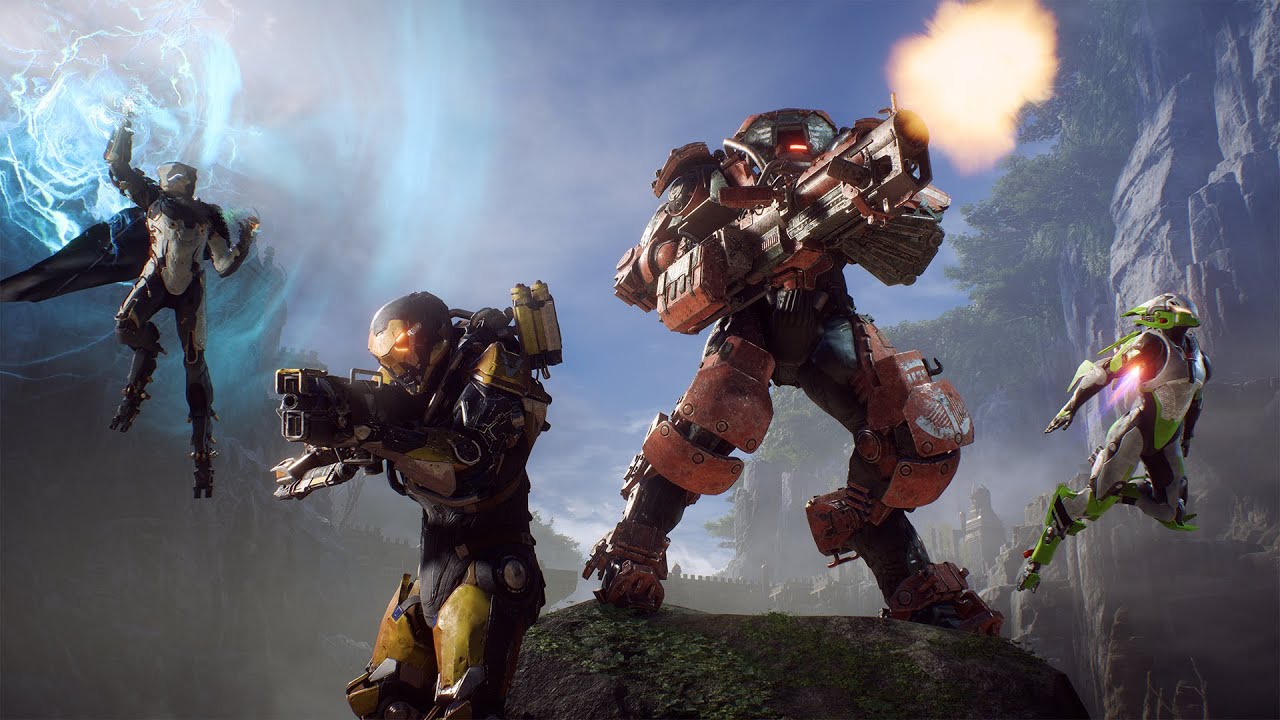Electronic Arts says the old way of releasing games doesn't work anymore
The Anthem experience has apparently led EA to reconsider how it launches large-scale online games.
Keep up to date with the most important stories and the best deals, as picked by the PC Gamer team.
You are now subscribed
Your newsletter sign-up was successful
Want to add more newsletters?

Every Friday
GamesRadar+
Your weekly update on everything you could ever want to know about the games you already love, games we know you're going to love in the near future, and tales from the communities that surround them.

Every Thursday
GTA 6 O'clock
Our special GTA 6 newsletter, with breaking news, insider info, and rumor analysis from the award-winning GTA 6 O'clock experts.

Every Friday
Knowledge
From the creators of Edge: A weekly videogame industry newsletter with analysis from expert writers, guidance from professionals, and insight into what's on the horizon.

Every Thursday
The Setup
Hardware nerds unite, sign up to our free tech newsletter for a weekly digest of the hottest new tech, the latest gadgets on the test bench, and much more.

Every Wednesday
Switch 2 Spotlight
Sign up to our new Switch 2 newsletter, where we bring you the latest talking points on Nintendo's new console each week, bring you up to date on the news, and recommend what games to play.

Every Saturday
The Watchlist
Subscribe for a weekly digest of the movie and TV news that matters, direct to your inbox. From first-look trailers, interviews, reviews and explainers, we've got you covered.

Once a month
SFX
Get sneak previews, exclusive competitions and details of special events each month!
Electronic Arts acknowledged during its Q4 FY2019 financial results conference call that Anthem, which it expected to be one of its biggest releases of the year, did not live up to expectations. Despite all its problems, EA reaffirmed support for both the game and developer BioWare, but it also said that the experience has led it to realize that it needs to start handling large, live-service game releases differently than it has in the past.
"The reality is, it's not just an EA challenge, it's an industry-wide challenge," CEO Andrew Wilson said during the call, referencing the difficulties of creating and operating large-scale open-world games like Anthem. "You're moving from what was initially a BioWare game which would be somewhere between 40 and 80 hours of offline play to 40 to 80 hours of offline play plus 100 or 200, 300 hours of elder game that happens with millions of other players at scale, online."
That obviously has an impact on development and QA processes, but EA is also examining how it presents new games to potential audiences, with an eye toward managing expectations. Wilson said that in Asia, major online games generally go through a soft launch and multiple community tests before everything goes live, which enables EA to get a better idea of how they'll behave at scale. In the West, however, major publishers have stuck with older conventions: A "drip-feed approach" to marketing to "build up the appetite and excitement for the game," that leads straight into release.
"As games have gotten bigger that system isn't working as as well as it has done in years gone by. So what you should expect from us is that it's not just about changing the development processes in the game, it's not just about changing the QA process in the game—although both of those things are being changed dramatically inside our organization right now—but it also comes down to changing how we launch games," Wilson said.
"You should expect that we'll start to test things like soft launches—the same things that you see in the mobile space right now. And it also comes down to changing how we communicate with players. Our entire marketing organization now is moving out of presentation mode and into conversation mode, and changing how we interact with players over time."
Wilson believes that change in approach should help ensure that games run better and more reliably when they go fully live, and will also help players "understand exactly what it is that they're going to be playing, and how they're going to be playing both on the day of launch and over time."
"We think that we're in a really good position for this—I think this gets really hard if you don't have scale to do this, and so we feel very good about it ," Wilson said. "And over time we hope that we can lead from the front and help other developers and publishers change the way they do things as well."
Keep up to date with the most important stories and the best deals, as picked by the PC Gamer team.

Andy has been gaming on PCs from the very beginning, starting as a youngster with text adventures and primitive action games on a cassette-based TRS80. From there he graduated to the glory days of Sierra Online adventures and Microprose sims, ran a local BBS, learned how to build PCs, and developed a longstanding love of RPGs, immersive sims, and shooters. He began writing videogame news in 2007 for The Escapist and somehow managed to avoid getting fired until 2014, when he joined the storied ranks of PC Gamer. He covers all aspects of the industry, from new game announcements and patch notes to legal disputes, Twitch beefs, esports, and Henry Cavill. Lots of Henry Cavill.


